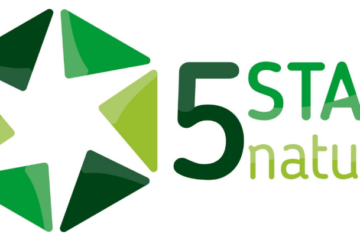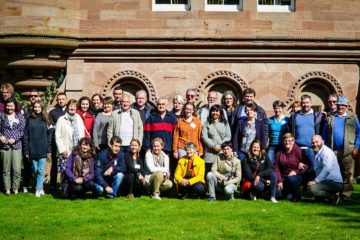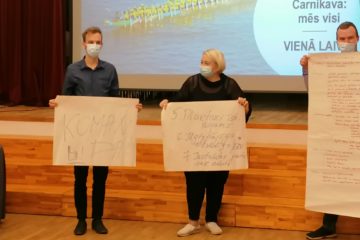QUAND LES ENFANTS CEREALISENT (WHEN CHILDREN ARE LEARNING)
Project n°13
INTRODUCTION
The project, initiated by the Pays de Fontainebleau with the support of the European LEADER programme, took place during the 2021-2022 school year. In cooperation with local farmers and the 1001 Sillons association, nearly 150 children from leisure centres in the area benefited from activities around cereal cultivation. In addition to raising children’s awareness of environmental issues, and helping them discover and develop the link between nature and food, this programme enabled them to learn about farming through participatory pedagogy. This project allowed a collaborative work between the animation teams of the same territory and the meeting between children from different municipalities. Also, by creating small agricultural plots in the heart of a city or village, the project has helped to build links between the inhabitants of the participating municipalities and the agricultural fabric.
PRESENTATION OF THE PROJECT
The project “When children get over” took place during the 2021-2022 school year (corresponding to the cereal crop cycle), during which the public was involved in a small agricultural plot. They participated in a dozen interventions of the partner association “1001 Sillons”, within each participating leisure reception. After working with the animation teams and the association, as well as purchasing raw materials (seeds, food products), three workshops on the cultivation and maintenance of the agricultural plot were organized in October, April and June. These plots were made available by the municipalities of the participating leisure facilities. Each plot was dedicated to the cultivation of a different cereal: wheat, corn and buckwheat. Each structure was responsible for the maintenance of its plot. Three collective and participatory workshops were organized for nursery and elementary children. It was a workshop “Tales, music, songs” around the plot, outdoors. A workshop on the Cooperative Territory provided an opportunity to better understand the global causal chains of climate change and to create a space for exchange on these issues. This workshop also allowed to locate the other plots created in the territory to follow the crops. The last workshop was dedicated to the creation of a recipe around local and seasonal food. It was an opportunity to use the cereal grown, sharing and valuing each other’s experiences and skills. In parallel, each leisure centre participated in two educational outings (sept-oct/ mars-june) to farms and agricultural holdings in the territory. The project concluded with a INTER-CENTRE day whose objective was to gather to celebrate the harvest around games and animations on the theme of agriculture. All the children’s learning was reinvested throughout the year through other projects carried by their animators (photo reportage, newspaper, artistic creation, vegetable gardens…). The project theme was a true guiding thread for activities aimed at different age groups.
PRINCIPAL OBJECTIVES
- Promote quality agriculture and food and encourage biodiversity Enhance local natural heritage
- Raising public awareness of environmental issues
- To make the public discover and develop the link with nature and food, the farmer’s profession through a participatory pedagogy
- Promote learning of skills
- Strengthen and enhance the collaboration between the childhood and youth structures of the Pays de Fontainebleau
- Strengthening local partnership
ADDED VALUES OF THE PROJECT
This project is a first successful operational experiment on the agricultural policy of the territory. All the actions carried out are powerful educational tools and supports to carry out and promote this policy among young people and by impact on families and inhabitants. The evaluation of the project showed a high level of satisfaction among participants (8.5/10) as well as supervisors and partners. The LEADER programme’s support in terms of engineering and funding was essential to the success of the project. The workshops were all very exciting for children and allowed them to learn a lot of knowledge through practice and discovery. In particular, the difficulties and uncertainties encountered in the workshops related to the cultivation of parcels confronted the children with the reality of farming. The involvement of municipalities in the choice of the location of the plot has given a greater collective impact. On the one hand, some plots were visible to the population, and on the other hand, they helped rehabilitate some communal spaces. Following the project, the municipalities were able to continue the investment initiated on these lands. In addition, the thematic workshops promoted sensory experience, imagination and knowledge of the rural environment. During outings on the farm and on farms, the link established between leisure facilities and operators worked perfectly by enhancing their activities and trades to the point of generating new vocations.The closing day was a chance to measure in concrete terms the public’s learning and understanding of the origin of food. The pedagogical approach in a leisure setting has made it possible to involve children, even the youngest nursery children, who sometimes recognize themselves less in a school setting. The project has resulted in an extension and development of activities in leisure venues, for example: exhibitions, extensions of activities related to the project for other audiences (great games, cultural and artistic activities, workshops composting…), making vegetable gardens in the reception of leisure… All the actions of the project have been designed with respect for the environment, especially with cycling rather than bus travel. Special attention was paid to the acquired materials. Numerous communications were made around the project, indicating the financial and operational partners and allowing to inform a wider audience and to highlight the action of children (see attachments to the dossier): Direct information to families, Family portal of leisure accommodation, articles in local magazines and communal and inter-communal social networks. The partnership with 1001 Sillons association was a major asset for success and played a driving role for the teams. The involvement of the teams has enriched the actions and encouraged public participation. This project has promoted mutual knowledge among local animation teams, local farmers, municipalities and the public.


